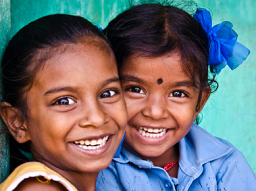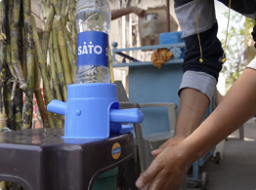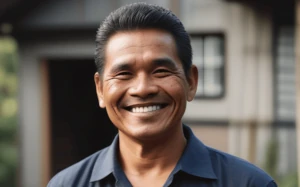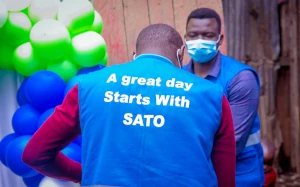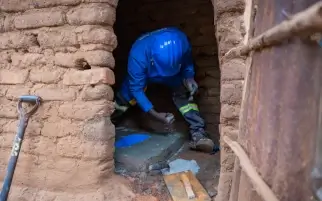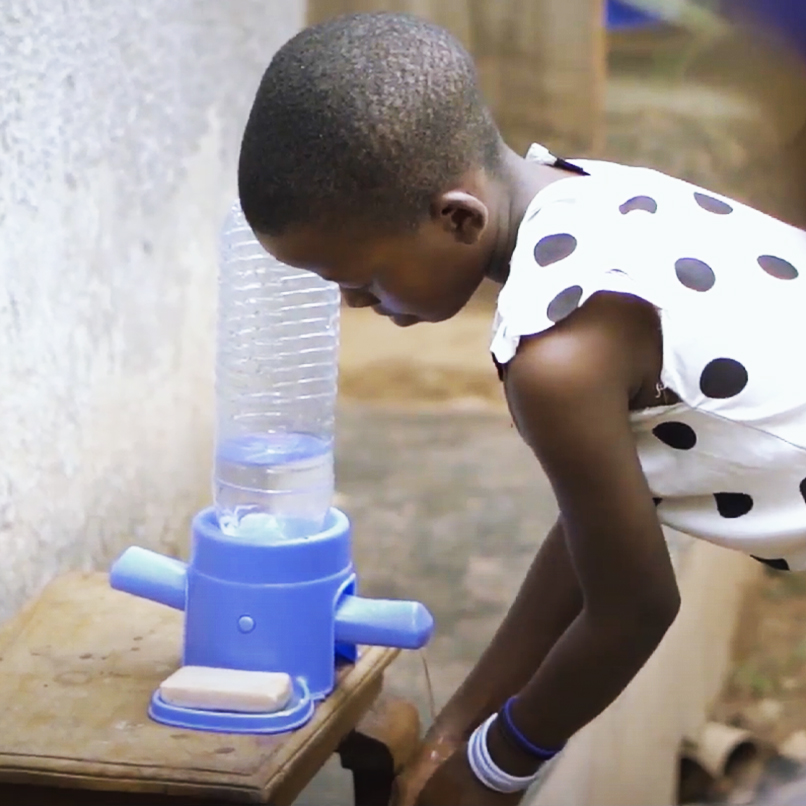
By Jason Cardosi
The pandemic drew renewed attention to the importance of hand hygiene. Now the challenge is to use this shared global experience to create a new generation of handwashers.
Our hands are central to the success of humans as a species. We design, build, write, draw, fight, defend, plant, harvest, eat, greet, clean with them and so much more. They are often our first point contact as we move through our environment. We touch about 140 unique objects every day, and our faces at least 16 times per hour.
Keeping hands clean should therefore be an obvious and natural habit. But it is not. Average rates of handwashing at key times, such as after using the toilet, range from about 13% to just 50% (a). The pandemic brought renewed attention to hand hygiene and this shared global experience should create a resilient habit and a new generation of handwashers. However, evidence from past disease outbreaks such as cholera, indicates that as the pandemic subsides so too will the practice of handwashing with soap.
Leaving aside all the issues associated with COVID-19, washing hands with soap can reduce acute respiratory infections by 16% and diarrhea by up to 47% (b). If everyone washed their hands with soap after using the toilet and before handling food, we could prevent millions of people from falling ill unnecessarily every year. More starkly handwashing with soap could contribute to saving hundreds of thousands of lives annually, including over 200 children currently dying every single day, according to the World Health Organization.
With stakes this high, why aren’t we doing more? Awareness of the problem is widespread. Governments and international organisations have set goals and are advocating action. But this action is needed quickly. Pioneers in the field such as Dr Val Curtis, former professor at the London School of Hygiene and Tropical Medicine, have long highlighted actions that need to be scaled. On Global Handwashing Day, we must focus on what can be done and urgently renew our efforts.
Firstly we need to make handwashing easy. Two billion people across the world do not have dedicated facilities with both soap and water to wash their hands at home. Great efforts have been made with solutions which are affordable such as the tippy tap, but these technologies have not innovated quickly enough to meet the changing needs, wants, and aspirations of people globally. Many soap companies have made inroads into addressing hygiene issues across the world and at LIXIL we are introducing the SATO Tap. We hope others, including our competitors, will be willing to join us to create vibrant handwashing markets everywhere, meeting consumer needs and driving further innovation.
Secondly, we need to promote effective handwashing. Even where handwashing with soap is easy to practice, there is still room for improvement. Apart from generating fear about possible outbreaks of disease, research has shown that talking about disease and germs does not drive sustainable behaviour. More effective is making handwashing core to good manners and acceptability within society. Within the private sector and academia there is much valuable understanding of this sort of consumer behaviour across different cultures around the world. We need to apply this knowledge more effectively and creatively to make handwashing with soap a worldwide habit.
Thirdly and most importantly, no organisation can do this alone. The key is to mobilise the most influential groups to work together. Governments can offer leadership and regulation to encourage market development, quality solutions, and scale. The catalysing power, global reach and experience of international development organizations is vital. NGOs have knowledge and reach among low-income populations. Academic institutions are key in leading research and offering expert guidance. And of course we need industry for continued commitment to growth, sustainability and innovation.
We are pleased to be part of recent global efforts with UNICEF, WEF, WHO, LSHTM, USAID, FCDO, Unilever, and Reckitt among others along with national governments. But we need to enable all these bodies to work together more effectively and, above all, we need real urgency in driving forward initiatives that lead to handwashing with soap becoming not just possible everywhere but an ingrained habit for everyone.
If you are interested in partnering with SATO to accelerate the drive towards handwashing please contact our partnerships team to discuss how we can work together.
References
(a.) Freeman, M.C., Stocks, M.E., Cumming, O., Jeandron, A., Higgins, J.P.T., Wolf, J., Prüss‐Ustün, A., Bonjour, S., Hunter, P.R., Fewtrell, L. and Curtis, V. (2014), Systematic review: Hygiene and health: systematic review of handwashing practices worldwide and update of health effects. Trop Med Int Health, 19: 906-916.
(b.) Curtis V, Schmidt W, Luby S, Florez R, Touré O, Biran A. Hygiene: new hopes, new horizons. Lancet Infect Dis. 2011 Apr;11(4):312-21. doi: 10.1016/S1473-3099(10)70224-3. PMID: 21453872; PMCID: PMC7106354.
